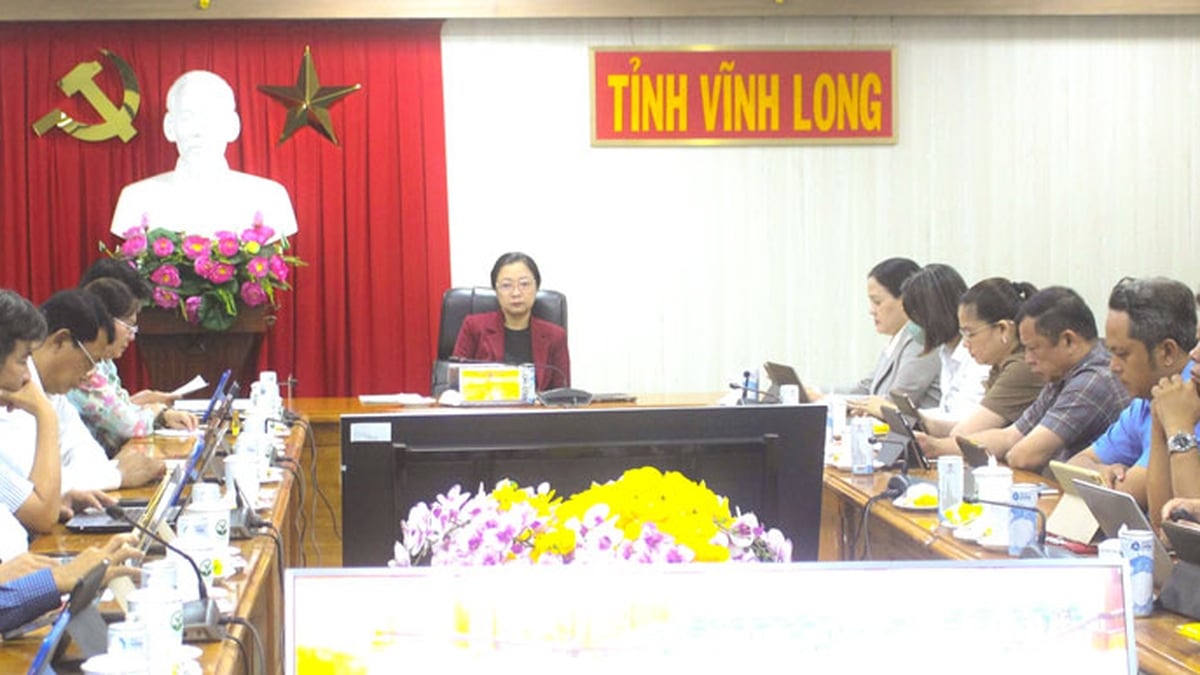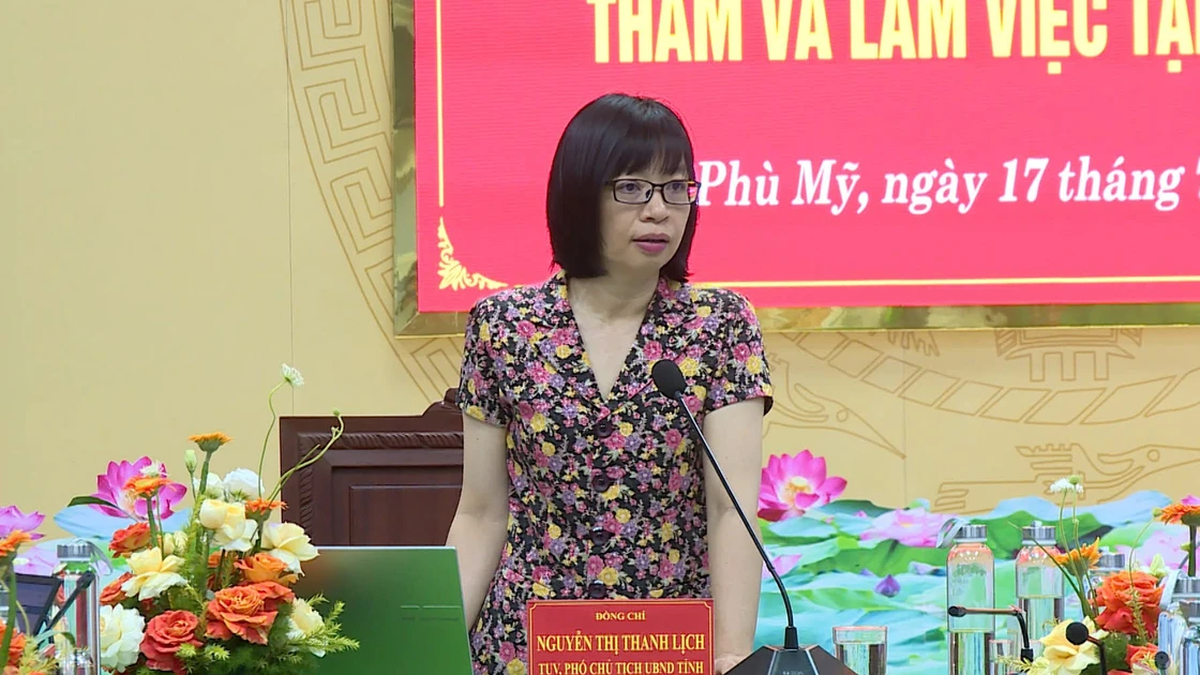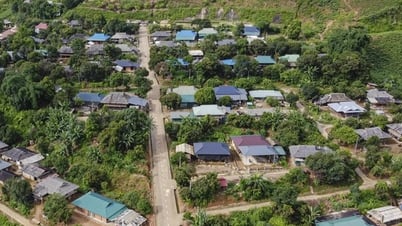Regulations on apartment ownership period will affect many subjects.
The article represents the views of lawyer Tran Xuan Tien - Head of Dong Doi Law Office ( Hanoi Bar Association), not necessarily the same as Dan Tri. Readers can respond in the comments section below the article.
According to legal expert - lawyer Tran Xuan Tien, the regulation on apartment ownership period will affect many subjects in society, especially the three parties directly involved in the relationship of buying and selling apartments, namely the buyer, the seller and the manager.

Lawyer Tran Xuan Tien - Head of Dong Doi Law Office (Photo: Le Mai).
Based on the reality in Vietnam in recent years, choosing to own an apartment is becoming a trend, especially in large cities with high population density such as Hanoi and Ho Chi Minh City. The obvious advantages of apartments are significantly cheaper than houses on the ground, convenience and especially the right to own an apartment for a long time.
However, it is worth mentioning that the ownership of an apartment building is long-term, but the use of the building is limited because this is an asset that is naturally depreciated and needs to be renovated or rebuilt after a certain period of time. However, the implementation of renovation and reconstruction of degraded apartment buildings is currently facing many difficulties, including difficulties in relocating residents.
In fact, many people refuse to move out of dilapidated apartments because they believe they have the right to own the apartment indefinitely. As a result, seriously degraded apartments still exist, not only posing a potential safety risk to residents but also affecting urban planning and landscape.
However, this proposal will be very difficult to easily receive the consensus of the majority of public opinion because the mindset of long-term ownership is deeply rooted in the minds of the majority of people. They all want to own a long-term, stable home for themselves and the next generation, in addition, there are still many issues that need to be resolved surrounding the issuance of pink books to households living in apartments.

The regulations on apartment ownership period in the draft Law on Housing (amended) are receiving special attention from the people (Illustration photo: Tran Khang).
The Government has just submitted to the National Assembly Standing Committee a draft of the Housing Law (amended), which includes a proposal for a term of apartment ownership. Unlike previous drafts that proposed many options, in this draft law, the Government has proposed a single option, namely limited-term apartment ownership.
Accordingly, the term of use of an apartment building is determined based on the design documents and actual usage time as assessed and concluded by the competent authority. The owner must terminate ownership when the apartment building is subject to demolition. The owner may continue to use the land area with the apartment building but must pay the cost of building a new area.
So, according to the current legal regulations on apartment ownership terms, is the specific content on limited-term apartment ownership in the latest proposal of the Ministry of Construction in the draft Law on Housing (amended) feasible?
Limited tenure apartments are available in many countries.
Currently, the provisions of the law on housing and land all recognize the legal ownership of housing associated with the right to use land in a stable and long-term manner, including the right to own apartments. In addition, the case of owning housing and using land for a limited period only applies to foreign individuals, houses built on land allocated by the State, land leased for a limited period and some other cases as prescribed.
Regarding the issue of limited-term apartment ownership, this is a regulation that has been applied for a long time in many countries around the world, to ensure the safety of people's lives. For example, in a country of a billion people like China, some large cities such as Beijing and Shanghai stipulate that apartments are sold with a term of 50 to 70 years, when the term expires, the State will reclaim it and no compensation is required.
Meanwhile, in Korea, apartment buildings or other buildings are redeveloped according to planning when the building's useful life expires. However, Korea also stipulates that after an apartment building has been built for more than 20 years, if safety problems are discovered, it can be rebuilt. The safety assessment criteria are based on 4 factors: Residential environment, aging level of the building and internal equipment, structural safety and cost analysis.
In Southeast Asia, Thailand provides 2 forms for people to choose from: Permanent ownership or ownership with a maximum term of 30 years and the price of buying a house with a term is only 30% to 70% of the price of a house with permanent ownership. Looking at Singapore, it also provides both forms of home ownership, in which if the ownership is with a term, the maximum is 99 years.
In Western countries, for example the US, all types of housing, including apartments, are sold on a limited lease basis. According to the latest statistics, up to 85% of US real estate is sold on a limited lease basis. The maximum term of use can be 99 years.

Apartment buildings are springing up like mushrooms in Thanh Xuan district (Hanoi) (Photo: Tran Khang).
In Vietnam, recently, some enterprises have built apartments with limited ownership, with very reasonable prices. For example, in Ho Chi Minh City, many short-term housing models have been implemented: C&T International Joint Stock Company is selling more than 300 apartments in Tan Binh District, with areas from 30 to 65m2, ownership period of 12 years, starting price of 347 million VND; Le Thanh Company in Binh Tan District has also completed the Le Thanh Twin Tower project, providing more than 3,000 apartments with areas from 30 to 45m2, starting price of 240 million VND for 15-year ownership and 350 million VND for 49-year ownership plan.
Adopting regulations and law-making experience from developed countries, and based on current reality, when apartment buildings are densely populated areas, long-term use will reduce the quality of the building, not ensuring the safety of residents, proposing regulations on the duration of apartment ownership is a progressive solution. However, at this time, whether the above regulations are appropriate and effective or not is an issue that needs to be carefully considered and reviewed.
Condominium ownership terms are not the same.
Regarding the construction period, according to current construction law, construction has a certain period of use determined according to design documents or actual period of use.
With this understanding, the criteria for classifying construction works according to scale and structure are clearly defined, such as: Apartment buildings over 50 floors (special level constructions) and apartment buildings from 25 to 50 floors (level I constructions) will have a life span of over 100 years. For apartment buildings from 8 to 24 floors (level II constructions), the life span is 50-100 years; apartment buildings from 2 to 7 floors (level III constructions) will only have a life span of 20 to less than 50 years...

Apartment buildings have different life spans (Photo: Hanoi).
It can be seen that the ownership period of an apartment building depends on the regulations on the classification of construction works. In case the term of use expires according to the design documents, the State will conduct an inspection and assessment of the quality of the construction to allow continued use or demolish it for reconstruction. Thus, the ownership period of an apartment building can be 50 years, 70 years or up to 80 years, 90 years, 100 years... depending on the quality of the construction.
If this proposal is approved and implemented, the issuance of pink books to people means confirming the right to own and use assets on land for a limited period of time; at the same time, the right to decide, own and use assets also depends on the construction period.
Will affect quite a few subjects
To evaluate the new policy in practice, it is possible to look in two directions to see both the positive aspects and the difficulties.
On the positive side, the regulation on the term of use of apartment buildings is consistent with reality, most clearly demonstrated in ensuring safety for residents through quality control of construction works. At the same time, this regulation helps reduce apartment prices, creating conditions for residents to diversify forms of housing ownership to suit their needs and economic capabilities.
Establishing standards for assessing the lifespan of apartment buildings also helps facilitate the renovation and reconstruction of old apartment buildings, planning changes, and infrastructure reconstruction, ensuring the safety of people's lives and property.

According to lawyer Tran Xuan Tien, the regulation on apartment ownership period will affect many subjects (Illustration: Ha Phong).
The problem lies in the implementation (with the current mechanism) and the arising procedures (licensing, evaluating constructions and demolishing old constructions) and the change in the nature of assets, from a type of asset (home ownership) recognized indefinitely, now changed to a type of asset that can only be used and bought and sold for 50-70 years, not including depreciation over time.
Therefore, this policy will affect many subjects in society, especially the three parties directly involved in the purchase and sale of apartments, namely the buyer, the seller and the manager. Specifically as follows:
On the side of investors implementing real estate business projects: Because the new policy may remove the indefiniteness of home ownership, it reduces the value of real estate such as apartments. Because in the relationship of buying and selling apartments, in addition to the value of use that the house brings, the stability and long-term nature between big cities is the factor that makes many people want to own apartments.
With this new proposal, in the future, apartment prices may decrease, partly due to the decrease in value itself, and partly because people will not be interested in this type of real estate that has already depreciated heavily and now has a lifespan of only about one lifetime.
This will promote competition among real estate project investors, stimulating them to optimize economic problems, so as to effectively use investment capital, as well as optimize prices and legal services to attract people.
On the side of people who have, are and will own apartments: Because the prices of apartments in big cities are currently quite high, this is the consequence when the majority of billionaires in the country come from the real estate industry with the mindset of "getting rich from dividing and selling land", pushing housing prices too high compared to people's income.
In fact, to own an apartment in big cities (in fact, only in big cities there is demand and supply for apartments), people have to spend a huge amount of money compared to their income, and the majority even have to borrow money to buy a house, creating great pressure on life.
If the new policy is put into effect, it will create greater pressure on people in both the short and long term. Because for those who already own apartments, in addition to physical depreciation, they also have to bear legal depreciation. When the quality and value of the house gradually decrease over time and become unusable, the homeowner is at risk of losing ownership of the premises he has purchased.
For those who are about to buy a house, because the indefinite nature of home ownership is no longer there, they will tend to buy houses on land to optimize financial resources and seek security, which will push up land prices again and the burden will ultimately fall on the people.
Not to mention, limiting home ownership rights can affect other civil rights, especially the right to inherit property. Because in the thinking of Vietnamese people from the past to the present, housing is a place to "settle down and make a living", with a long-term, stable nature, apartments are also considered important assets, often transferred by people to the next generation. Applying the new policy may cause difficulties for this activity.
On the part of the State Management Agency: The proposal will create a new mechanism, leading to many new activities in the State administrative management of housing, which has many potential difficulties and shortcomings. Specifically: Licensing and evaluating construction works is a potential source of many negative aspects: Licensing and managing construction works has always had many shortcomings, and illegal and unsafe construction works exist in reality.
If the procedure for evaluating the age of a building for the purpose of demolition is implemented, who can guarantee that these tasks will be carried out impartially, without profiteering and without the intervention of real estate investors to prolong the existence of a degraded building?
Because the construction, maintenance and demolition of apartment buildings are extremely complicated in terms of legal procedures and dangerous in terms of practice, since most apartment buildings are built in large cities - densely populated areas. Not to mention the site clearance and relocation to demolish old apartments can even cause many complicated social problems, similar in nature to site clearance activities for land use rights, easily causing unpredictable consequences.
Regarding management, due to the limited time of home ownership, the housing is subject to a term, which will create a difference in price and value. Specifically, housing that is nearing the end of its term will have a low price and vice versa, newly built apartments with a long term will be offered for sale at a high price.
Basically, home ownership will be considered as securities with value considered through many aspects such as construction quality, investor reputation, legal documents and especially the term of use. This feature can give rise to many complicated problems such as taking advantage of the term to increase real estate prices or intentionally transferring at low prices to evade taxes.
Similarly, the valuation of apartments with this new feature also faces many difficulties, especially when depreciation has stabilized, the age may be the decisive feature of real estate prices. As mentioned, the assessment of age depends on the State agency with its set of standards, which may give rise to many problems regarding the management of the purchase and sale of apartment buildings and tax management.
The above proposal is made with the aim of creating a legal basis to overcome difficulties and obstacles in renovating and rebuilding apartment buildings, facilitating urban planning as well as ensuring the safety of people in urban areas. However, for the above regulation to be effectively implemented and put into practice depends on many other factors.
In addition to changing policy regulations, it is necessary to synchronously implement measures to change social infrastructure, develop the national economy, and improve people's living conditions. When actual conditions are fully met, new legal policies can come into practice and promote the set goals.
Tran Xuan Tien
March 15, 2023
Source





























































![[Maritime News] More than 80% of global container shipping capacity is in the hands of MSC and major shipping alliances](https://vphoto.vietnam.vn/thumb/402x226/vietnam/resource/IMAGE/2025/7/16/6b4d586c984b4cbf8c5680352b9eaeb0)






































Comment (0)